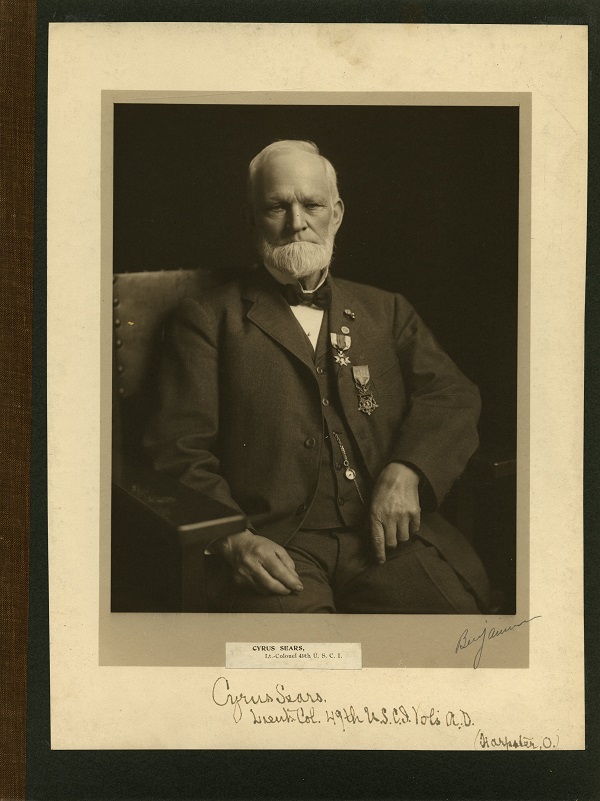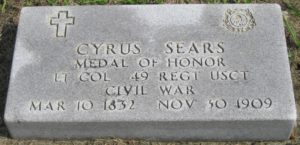Cyrus Sears, Hero at Iuka
Lt. Col. Cyrus Sears would command the far right wing of the Union defensive line at Milliken’s Bend, and it was two companies of his 11th Louisiana who made their stand behind some cotton bales that brought a devastating enfilading fire down upon the men of the 16th Texas Infantry. Sears’ troops would be the only portion of the Union line that maintained their original positions during the battle.
Although his leadership was clearly influential at Milliken’s Bend, he was an experienced soldier. On September 19, 1862, as a lieutenant with the 11th Ohio Battery of artillery at Iuka, he was in the center of the Confederate onslaught.
Confederate forces attacked the position three times. Casualties were so severe, that the 11th Ohio had 46 out of 54 cannoneers wounded or killed, ranking them among the top artillery units for losses during the entire war. Their battery was immobilized with only three out of 80 horses coming through unscathed. Sears’s commanding general cited him for his bravery: Sears left his post only after being wounded, and when his battery was just moments from annihilation.
Sears was awarded his Medal of Honor, like many Civil War veterans, well after the war. It would be 1892 before his steadfastness to duty received this recognition, and the citation was a simple, understated sentence: “Although severely wounded, [he] fought his battery until the cannoneers and horses were nearly all killed or wounded.” His story and that of the 11th Ohio is told in much greater detail in The Story of American Heroism. A more modern explanation of the battle is written by Phil Spaugy, entitled: “Use Canister, Aim Low, and Give Them Hell!” Both of these accounts provide rich detail about the nature of the fighting, and the impossible odds faced and resisted by the 11th Ohio Battery.
No doubt because he advanced to the higher rank of Lt. Col. with the 49th U.S. Colored Infantry (the later name of the 11th Louisiana which fought at Milliken’s Bend), Sears’s tombstone lists that rank and unit.
However, this gives the impression that his Medal of Honor came from service with that regiment. Unmentioned at his grave is his service with the 11th Ohio Battery, for which he received this honor.
The heroics at Iuka were well behind him by the time Sears served at Milliken’s Bend, again resisting another Confederate onslaught. Both battles held important memories for him in later years. He wrote “The Eleventh Ohio Battery at Iuka, The Bloodiest Single-field Battery Contest on Record” which he read at a battery reunion in 1898. In 1908, he wrote the humbly-titled “Paper of Cyrus Sears,” recounting the battle at Milliken’s Bend, and indicting his fellow veterans for not taking a stand against the crime and horrors of lynching. So inflammatory was his text, that the Loyal Legion, before which it was read, refused to publish it. Sears did so at his own expense in 1909, and died later that year.




Comments
Cyrus Sears, Hero at Iuka — No Comments
HTML tags allowed in your comment: <a href="" title=""> <abbr title=""> <acronym title=""> <b> <blockquote cite=""> <cite> <code> <del datetime=""> <em> <i> <q cite=""> <s> <strike> <strong>